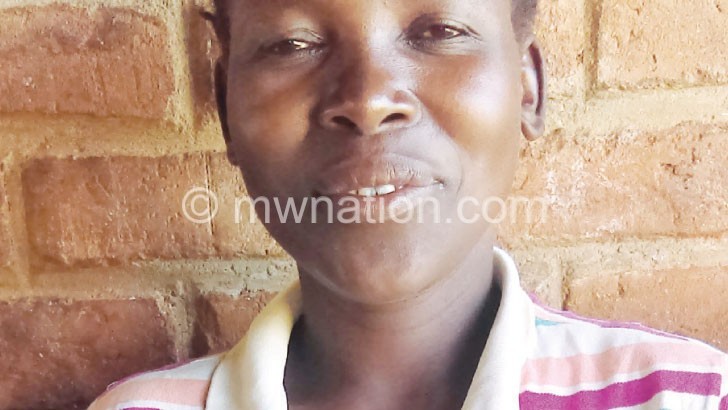Fees forcing Mchinji students out of school
Myness Kayange, 35, works as a part time herder at Likasi Livestock Farm.
It is a male-dominated field and she is the only female—the first ever at the farm.
But she has no choice. She desperately needs the K30 000 she earns per month.

Kayange, from Traditional Authority (T/A) Mlonyeni in Mchinji, took up the job after the death of her two siblings made her a guardian of 14 children, five of whom are her own; another five for her late sister and four for her late brother.
Her work shift starts at 6.30 in the morning up to around two in the afternoon.
Kayange had a husband who is the father of her children.
But he left when she was expecting her youngest child who is two-month old.
“I believe he was overwhelmed by the responsibility that came with having nine more children in our extended family,” she explains.
Kayange’s biggest challenge is school fees for her sister’s son Gift Mayaya, a Form One student at Mchinji Secondary School.
The boy has been sent home after she failed to pay schools fees for the second term.
Kayange’s situation is not an isolated one. Mchinji District has several households where children are failing to go to schools because of school fees.
Mayamiko Paul , 14, from T/A Mwavwere is another student who has found himself at home after his single-mother Natalia Uledi failed to pay school fees.
She only managed to pay first term fees by subleasing her farm land for three years.
She had nowhere to source funds for second term fees hence Mayamiko was sent home.
Uledi’s visits to various institutions to solicit financial support yielded nothing.
The boy was forced to help her mother do piece work to raise the fees.
Luckily, the two boys can now go back to school after a well-wisher came forward and paid for the fees.
But Mchinji Secondary School still has 35 more students in need of support.
The number is even alarming at district level where 139 students are facing fees problems.
Speaking in an interview, Mchinji Secondary School deputy headteacher Lexly Chikafa noted that most children in the district are orphaned and live with grandparents, who are old to work and raise their fees.
Others, he says, were abandoned by their parents due to broken marriages.
“There are single mothers who have done their best to raise fees. Elusi, for instance, leased her land to money.
Some sell their livestock while others are doing piece work,” he said.
According to Chikafa, in the second term alone, 32 students in Form One and Two dropped out from the school.
In Form Three, 12 dropped out while six dropped out in Form Four despite having already paid their Malawi School Certificate of Education (MSCE) examination fees.
Mchinji district social welfare officer Hanna Chapata-Mangani revealed that the dropout rate is much more than the official 139.
“The problem is widespread in the district. Most of them withdraw and do not inform us. So the figures we have are only for those who have been to our office seeking help,” she said.
Lilongwe is facing the same challenge. Dzenza Secondary School currently has 85 students on bursary.
The school’s assistant deputy head teacher Jovita Chisati noted that Dzenza being part of Lilongwe Rural, majority of the students come from needy families.
“Even before schools open, some parents come to complain that they cannot afford fees for their child who has been selected to the school.
“We have helped some but others are on the waiting list until well-wishers ask us for students they can sponsor,” she said.
Mchinji and many other districts across the country are seeing an increased trend of high school and college drop out due to school fees problems.
The situation is the same in other districts such as Kasungu, Dowa and Ntchisi for instance, where many students have reserved space with their respective schools, due to lack of school fees.
Ministry of Education, Science and Technology spokesperson Lindiwe Chide admitted the fees problem is a nationwide concern.
She pointed out that government abolished fees in all secondary schools to address the challenge.
Students in public day secondary schools were previously required to pay K3 250 of which K1 500 was for tuition per year, K1 500 was for general purpose fund, K250 text book revolving fund.
Additionally, Chide said about 24 000 students are benefiting from government bursary and that the ministry is also in talks with other partners to assist needy students.But until this is done more students are dropping out of school and losing interest in education for good. n





